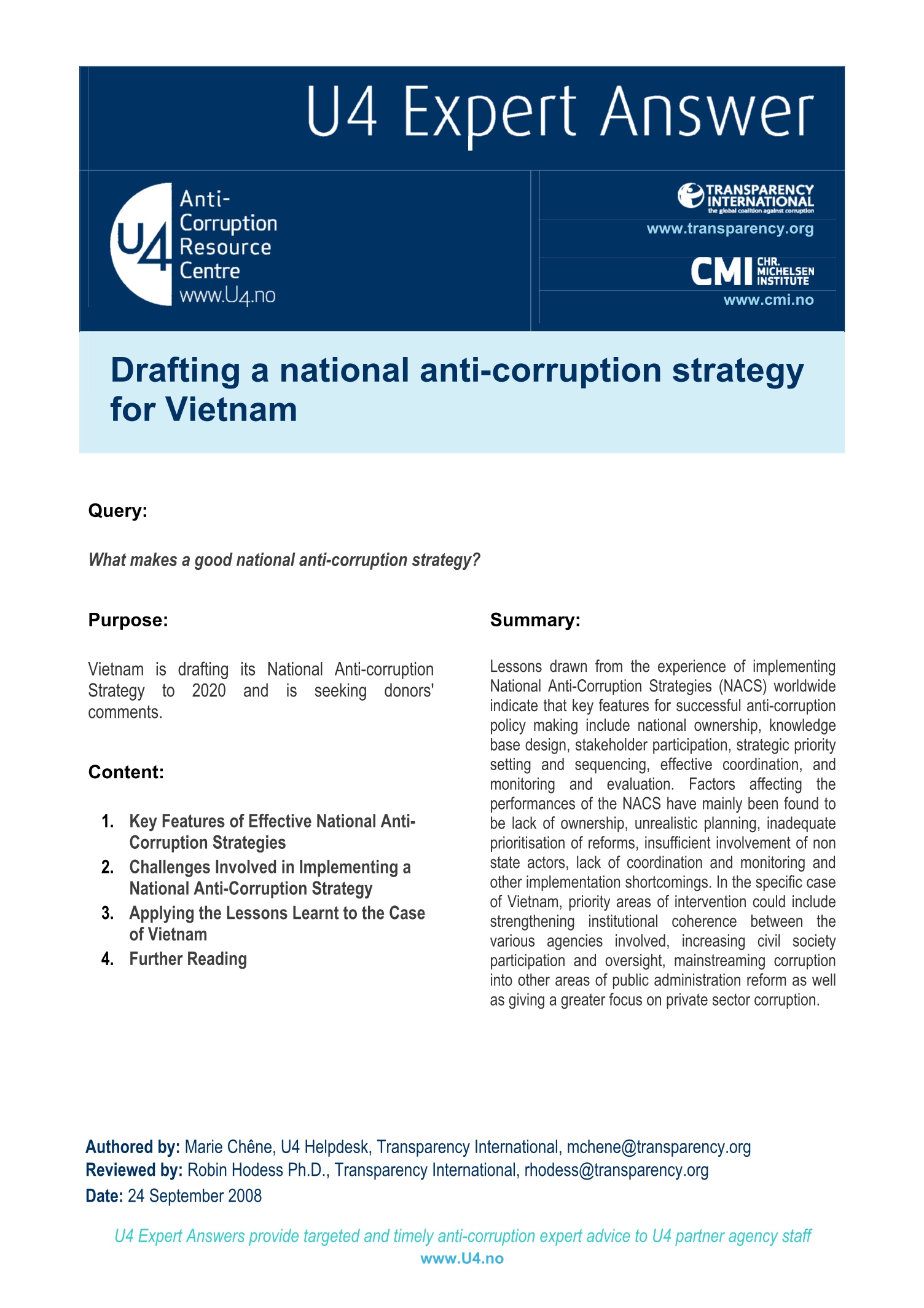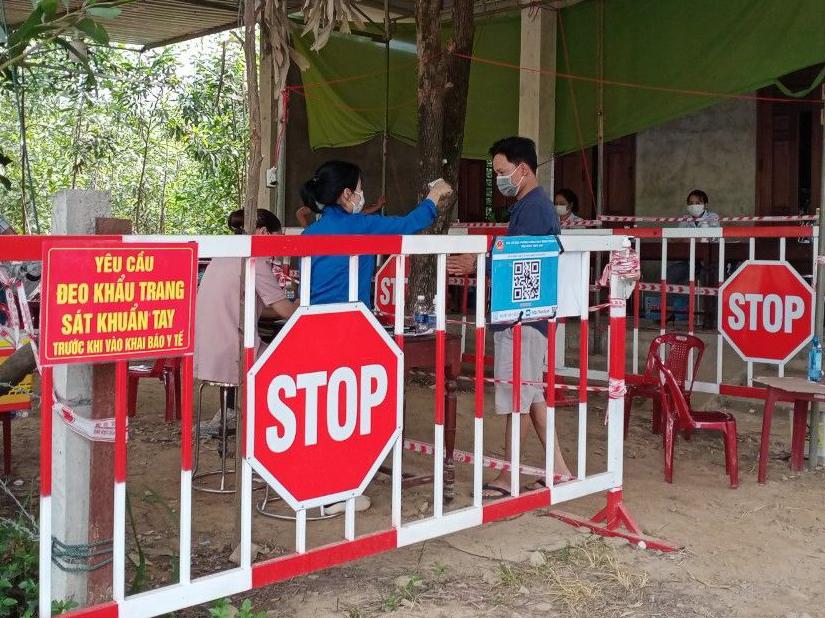U4 Helpdesk Answer
Drafting a national anti-corruption strategy for Vietnam
Lessons drawn from the experience of implementing National Anti-Corruption Strategies (NACS) worldwide indicate that key features for successful anti-corruption policy making include national ownership, knowledge base design, stakeholder participation, strategic priority setting and sequencing, effective coordination, and monitoring and evaluation. Factors affecting the performances of the NACS have mainly been found to be lack of ownership, unrealistic planning, inadequate prioritisation of reforms, insufficient involvement of non state actors, lack of coordination and monitoring and other implementation shortcomings. In the specific case of Vietnam, priority areas of intervention could include strengthening institutional coherence between the various agencies involved, increasing civil society participation and oversight, mainstreaming corruption into other areas of public administration reform as well as giving a greater focus on private sector corruption.

Cite this publication
Chêne, M. 2008. Drafting a national anti-corruption strategy for Vietnam. Bergen: U4 Anti-Corruption Resource Centre, Chr. Michelsen Institute (U4 Helpdesk Answer Helpdesk)
Disclaimer
All views in this text are the author(s)’, and may differ from the U4 partner agencies’ policies.
This work is licenced under a Creative Commons Attribution-NonCommercial-NoDerivatives 4.0 International licence (CC BY-NC-ND 4.0)

